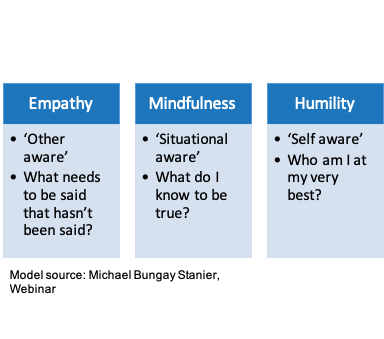Effective communication during uncertain” width=”384″ height=”339″>
In times of uncertainty, effective communication becomes even more crucial. Whether it’s personal relationships or professional settings, the ability to convey messages clearly and empathetically can help alleviate anxiety and foster a sense of trust and stability. This article will discuss some strategies and techniques for communicating effectively during periods of uncertainty.
1. Maintain Transparency
When faced with uncertain situations, it is essential to be transparent in your communication. Clearly explain what you know, what you don’t know, and the steps being taken to address the uncertainty. This transparency helps build trust and establishes a sense of credibility. Avoid withholding information or providing vague responses that may further fuel uncertainty.
2. Active Listening
Active listening is a crucial skill during uncertain times. When engaging in conversations, give your full attention to the speaker and strive to understand their concerns and perspectives. Use verbal and non-verbal cues to show that you are actively listening, such as nodding, maintaining eye contact, and summarizing what you’ve heard. This demonstrates empathy and shows that you value the speaker’s thoughts and feelings.
3. Provide Clarity and Context
During uncertain periods, it’s essential to provide clarity and context to avoid confusion and misinterpretation. Use clear and concise language to convey information. Break down complex concepts into simple terms and avoid using jargon or technical language that may be unfamiliar to others. Additionally, provide context to help individuals understand the bigger picture and how their roles or actions fit into the overall situation.
4. Be Responsive
In times of uncertainty, people often seek reassurance and guidance. Be responsive to queries, concerns, and feedback. Timely responses demonstrate that you are actively engaged and value the individuals’ input and concerns. Even if you don’t have all the answers, provide acknowledgement and assurance that their concerns are heard, and you are working towards finding solutions or more information.
5. Express Empathy
Uncertain times can evoke a range of emotions. It’s essential to express empathy and understanding towards individuals’ concerns and fears. Practice empathy by acknowledging their emotional state and showing compassion and support. Validate their feelings and offer words of comfort and encouragement. This can create a sense of solidarity and bring people closer together.
6. Adapt Communication Channels
During uncertain times, it may be necessary to adapt communication channels to ensure effective and efficient flow of information. Take advantage of various digital platforms and tools to reach out to individuals, such as video conferences, instant messaging, or email. Integrate these tools into your communication strategy to ensure communication isn’t hindered by physical distance or restrictions.
7. Minimize Rumors
In uncertain situations, rumors can spread quickly and cause unnecessary panic or confusion. It is crucial to address and dispel rumors promptly through transparent and accurate communication. Establish designated channels or platforms for information sharing to minimize the likelihood of rumors and to ensure individuals receive accurate and verified information.
8. Be Mindful of Non-Verbal Communication
Non-verbal cues play a significant role in communication. Be mindful of your body language, facial expressions, and tone of voice. Ensure that your non-verbal cues align with your verbal message to avoid mixed signals. During uncertain times, individuals may be more sensitive to non-verbal cues, so conveying a calm and confident demeanor can help instill a sense of stability.
Conclusion
Effective communication during uncertain times is key to building trust, reducing anxiety, and fostering a sense of stability. By maintaining transparency, actively listening, providing clarity and context, being responsive, expressing empathy, adapting communication channels, minimizing rumors, and being mindful of non-verbal communication, you can communicate effectively and help navigate through uncertainty with confidence.
